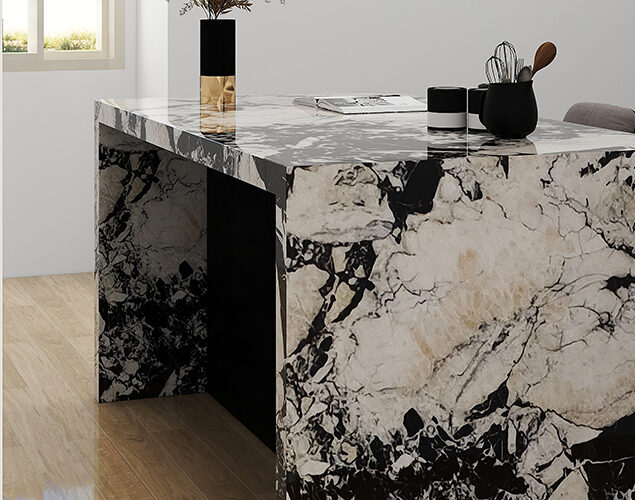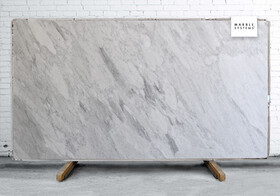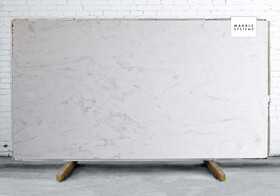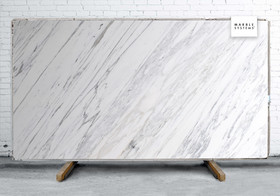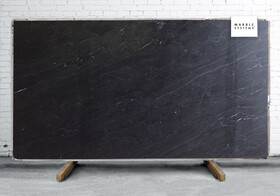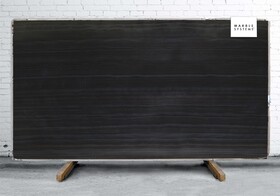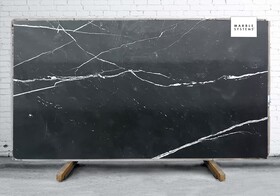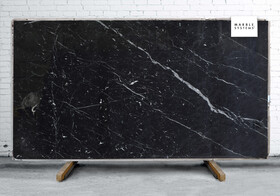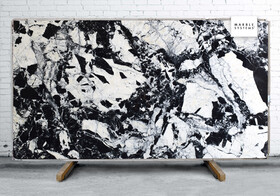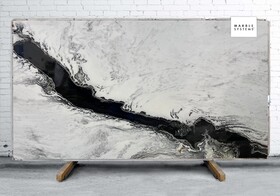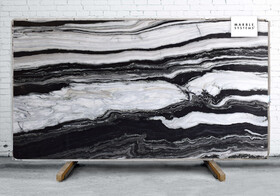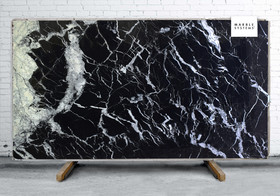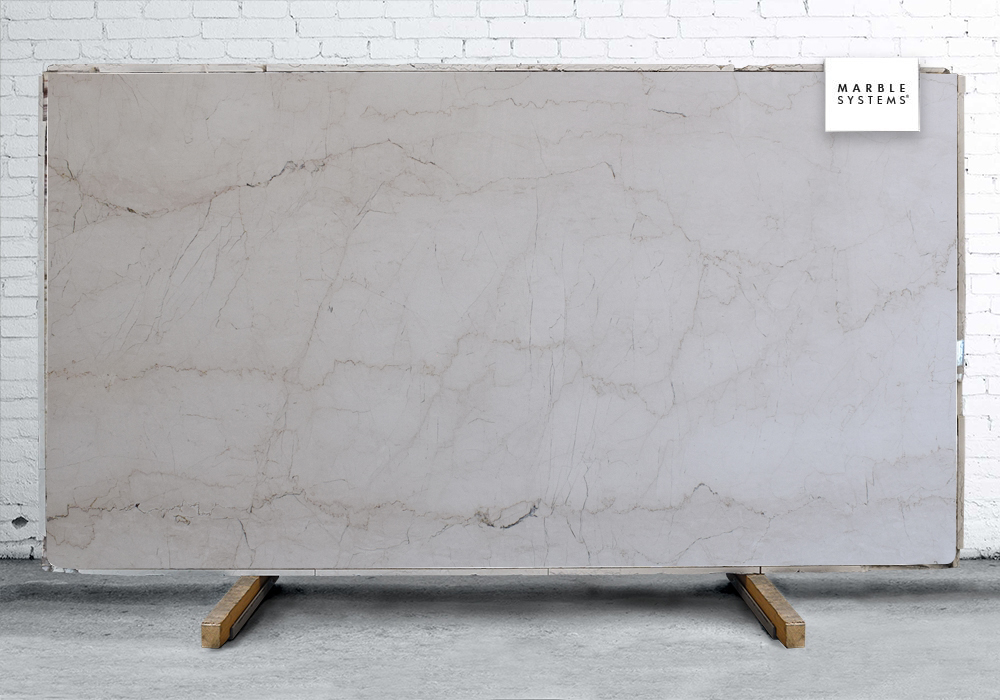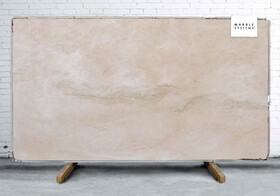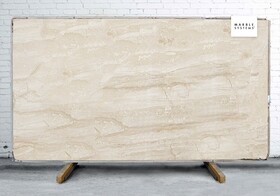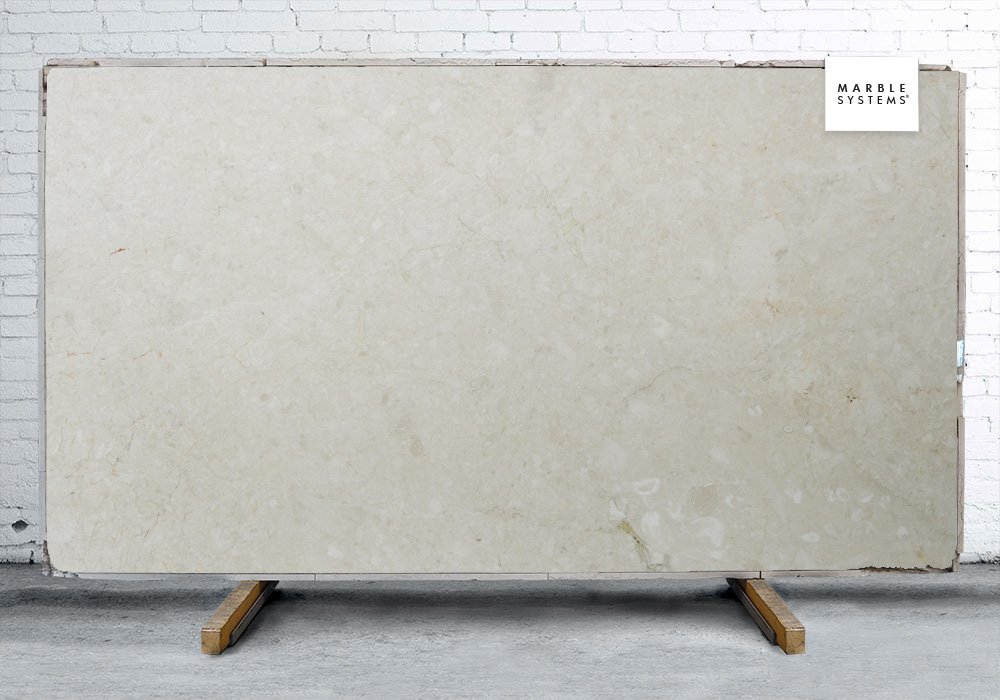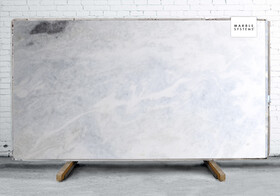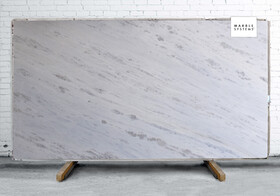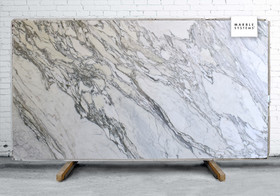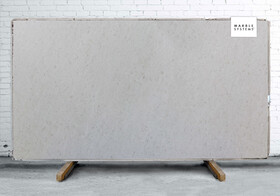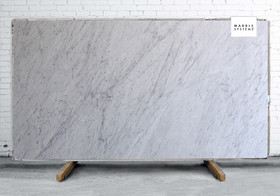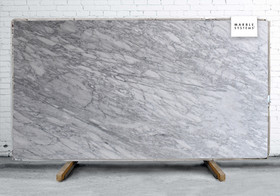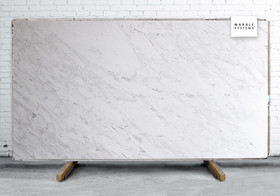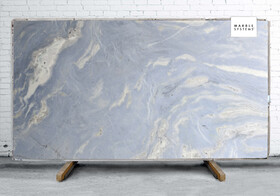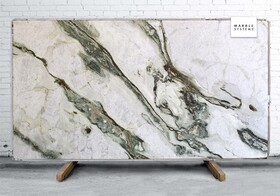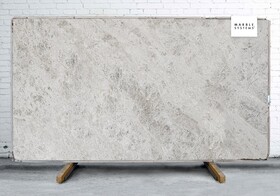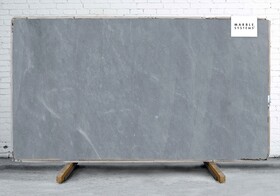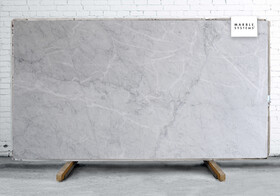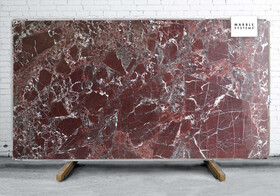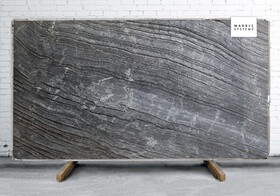There’s nothing more popular than marble slabs for kitchen countertops and bathroom vanity options. Timeless and elegant, they somehow suit a wide variety of interior design styles in an effortless and stylish way. Nevertheless, buying a marble slab is a long-lasting investment. Read on to discover the pros and cons of marble slabs, complete with marble countertop design ideas.
Marble slabs range in a variety of different colors and shades depending on where they come from and their mineral composition. Although white slabs are the most common and popular choice among homeowners, marble slabs are available in countless striking colors and vein patterns, including green marble slabs, black marble slabs, and more.
Carrara marble slabs are one of the most popular types of marble. These white slabs have subtle light gray veining interspersed throughout the surface. Another stunning option is Calacatta marble slabs, which typically have a bolder design. They come in a range of different colors, including Calacatta gold marble slabs, but stand out due to their bold and distinct veining.
Advantages
Here are the five advantages to buying marble slabs for kitchens and bathrooms:
1. Aesthetics
The #1 advantage of marble slabs is their beauty. It is impossible to replicate its natural beauty with a machine due to the range and variety of shades and hues available. The beauty of marble slabs lies in their organic asymmetry and unevenness in their veining pattern. However, if you are seeking a more uniform marble slab look, there are options available. Pure white marble slabs and deep black marble slabs are both stunning choices.
In addition to picking the right color and shade that works for you, it is also important to consider the look of the marble slab finish:
Honed marble slabs have a matte look, which makes them great for modern and contemporary spaces.
Polished marble slabs are a classic marble slab option with a glossy finish. These slabs reflect light beautifully and make spaces feel larger.
2. Luminosity
One of the most distinct features of marble slabs is its natural luminosity. It is slightly translucent, which diffuses natural light throughout the room. It is what gives marble slabs their innate appeal and beauty. If you have a small space, then marble kitchen slabs or marble bathroom slabs are a great way to bring some light and airiness to the room.
3. Durability

As a natural stone, slabs of marble are incredibly hard-wearing options that are unlikely to chip or break. It has an estimated rating of 4 on the Mohs hardness scale. While granite is more hardwearing with a ranking of 6, marble is still a highly durable option for a kitchen countertop. It is a great investment that will last a lifetime.
4. Heat Resistance
Marble slabs are naturally heat resistant, which makes them a great option for kitchen countertops. It naturally feels cool to the touch and conducts heat, so do not worry about damaging the stone when cooking or baking. However, we still do not recommend placing hot pans or pots directly on its surface to protect the seal.
5. Variety
The final advantage of marble slabs is the incredible variety of shades, patterns, and options available. Although white marble slabs are one of the most popular and wide-reaching choices, marble slabs can come in a range of incredibly bold and striking colors. Consider choosing a more vibrant choice like green marble slabs, black marble slabs, or even red marble slabs if you’re seeking to add some more color and depth to your kitchen or bathroom.
Disadvantages
In contrast, here are some marble slab disadvantages to consider:
1. Porosity
One of the main disadvantages of marble slabs is its porosity. Marble slabs are susceptible to staining from acidic liquids like wine, coffee, or tea. This process is called etching, which can wear down the sealant. Regularly re-sealing your marble slab is an important way to safeguard the countertop against staining and etching. We recommend immediately cleaning up any spills to prevent permanent staining.
Honed marble slabs can stain more easily due to their finish.
Polished marble slabs are stain-resistant and easier to clean than honed marble slabs.
2. Scratching
While marble slabs are incredibly hardwearing and durable, they still can be scratched by sharp metal objects like knives. Therefore, always be sure to avoid placing metal objects directly on its surface and use a pot holder or pad.
3. Installation
Marble slabs are difficult to install due to their heaviness. We highly recommend hiring a professional to properly install your marble slab countertop or marble slab backsplash. Going the non-professional route can lead to chipping or scratching the surface of the marble.
4. Maintenance
Marble slabs are one of the more high-maintenance options when it comes to natural stone slabs. Due to their porosity, they require regular re-sealing to safeguard the surface. Additionally, it is important to properly care for and clean the surface of your marble slab regularly with a proper natural stone cleaner or one with a neutral pH.
5. Price
The last factor to consider is marble slab prices. Marble slabs are one of the most expensive countertop options available. Nevertheless, marble slabs are a timeless, long-lasting option that will be an incredible addition to your home for decades.
Conclusion
Marble slabs have remained one of the most popular and beautiful home interior options for good reason. Although they do have some disadvantages like porosity, maintenance, and cost, their unique and stunning appeal makes them a stunning choice for kitchen and bathroom countertops and backsplash options.
If you’re looking for stone countertops near me and marble slabs near me, shop Marble Systems’ full collection of marble slabs for sale online today.
